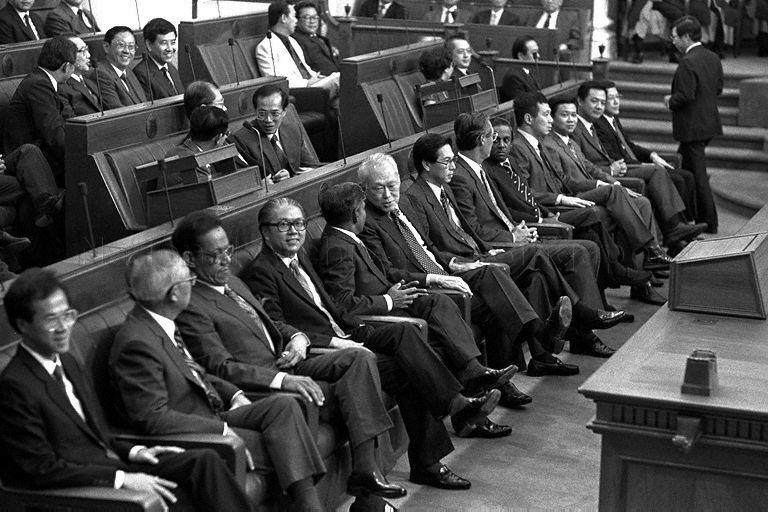Minister Chan Chun Sing recently addressed a parliamentary question regarding lowering the voting age to 18.
Stating that the government has no plans to reduce the voting age, Chan explained that voting in elections involves making “serious choices” that requires “experience and maturity.”
Some Singaporeans, however, felt that 18-year-olds are ready to have a say in the country's political future.
This, naturally, triggered a discussion on who should be given power at the ballot box.
However, similar discussions on the voting system are not new and have been around for a while.
Some people should get two votes?
In 1994, then-Senior Minister Lee Kuan Yew proposed changes to the one-person-one-vote system.
His suggestion was to give Singaporeans between 35 and 60 who are married with children two votes each.
This is because their contributions to the economy and to society would be "greatest at this stage of life", Lee was quoted as saying in a 1994 AP report.
He added that once parents pass the age of 60, their children would be able to vote for themselves.
″Once past 60, their children would have grown up, and would vote for themselves...Then the parents should drop back to one vote. But during those critical years, 35-60, people who carry twice as much responsibility should have two votes. This will make for a more viable system and a more stable society.″
Preventing disproportionate influence on govt policies
At the time of his remarks, Lee noted that this change "might be necessary" in the future.
Given Singapore's ageing population, he described that there could be a time where a huge proportion of elderly voters may be "tempted to pressure the government for welfare handouts".
Such an amendment to the system would hence prevent the older voters from influencing government policies disproportionately .
Modifying system to suit changing demands
Lee's suggestion appears to be tied to his view that the one-man-one-vote system can sometimes lead to great unpredictability.
In a 1984 speech, he said that the one-man-one-vote system is a very "difficult form of government". When people "vote for a change for change's sake", this could lead to "erratic results".
That same year, he also stated that "there is no guarantee that one-man-one-vote can continue to work in Singapore".
Top photo via National Archives of Singapore.
If you like what you read, follow us on Facebook, Instagram, Twitter and Telegram to get the latest updates.
